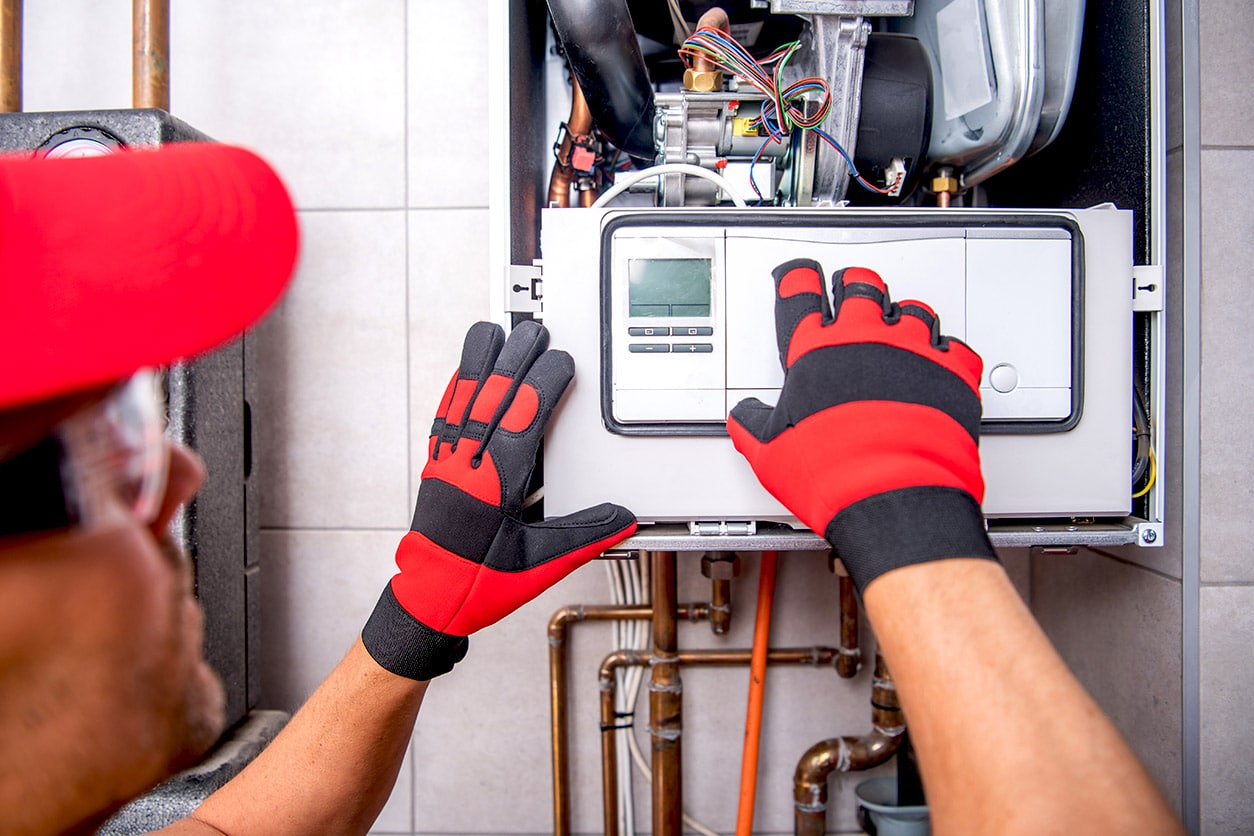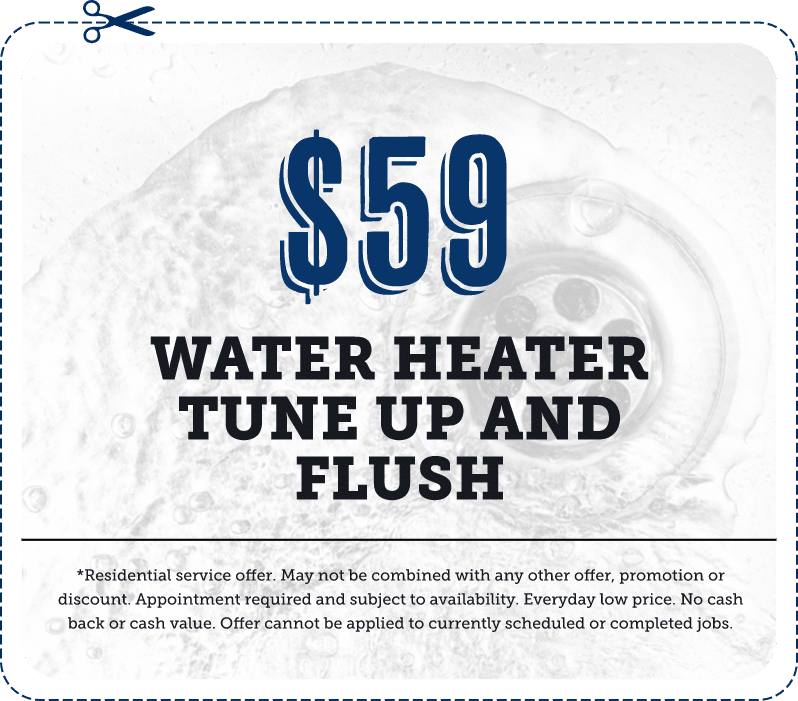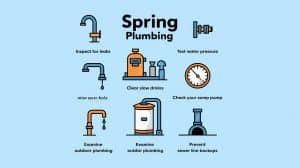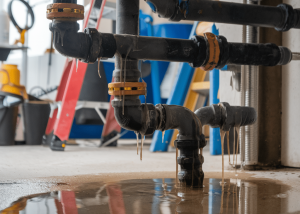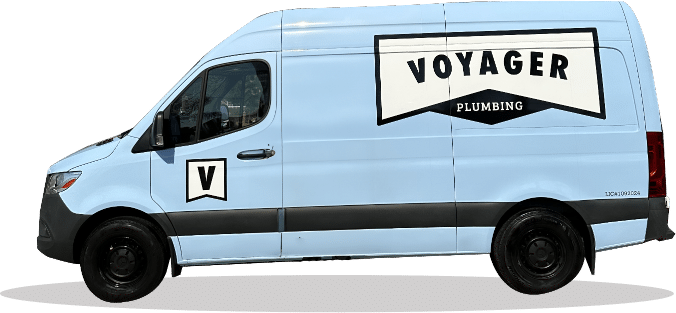For many San Diego families, it can be difficult to get through the day without hot water.
Enter the humble water heater—the thing that makes sure that your home has plenty of hot water all day long!
There are a few types of water heaters out there, but some of the most popular ones are tankless water heaters. There are two types of these heaters—gas tankless heaters and electric tankless water heaters.
One reason for these types of water heaters being so popular is that they are 24-34% more efficient than traditional heaters. But which type of tankless water heater is right for your home—gas or electric?
Let’s take a look at the differences between gas tankless heaters and their electric counterparts.
How do they work?
First, let’s get the lowdown on how these water heaters work:
Gas Tankless Water Heaters
As the name suggests, these water heaters won’t need to store water to heat it. The device heats water only when it passes through the unit.
When you turn on the faucet, the water enters the water heater and passes through a series of tubes called the heat exchanger, which passes through gas burners to heat the water.
Electric Tankless Water Heaters
Electric water heaters use the same principle as gas water heaters but use electricity to heat the water. It does so by heating the water through heating elements inside the unit.
Just like gas tankless water heaters, electric tankless water heaters are very efficient as they only heat water when needed.
What are the main differences between these two types of water heaters?
Here are some of the most significant differences between these two types of tankless water heaters:
1. Cost and Installation
Gas water heaters are generally more expensive upfront than their electrical counterparts. The total cost of installation for a gas tankless water heater can range between $1600 and $5,600, depending on the model.
Electric tankless water heaters are cheaper to install, costing around $1200. But the cost may be higher or lower depending on the brand you choose.
As far as installation goes, gas tankless water heaters are more complex, needing proper sizing, venting, and an adequate fresh air supply. This is the main reason these units are more expensive upfront.
Electric water heaters don’t require gas lines or venting, making them far easier and cheaper to install.
2. Operating Costs
When it comes to gas tankless water heaters, the operating cost can vary depending on the kind of fuel it uses.
Gas water heaters that use natural gas can be 10-15% cheaper to operate than electric tankless water heaters. However, electric tankless water heaters are cheaper to operate than gas water heaters that use propane.
3. Efficiency
Electric tankless water heaters have a thermal efficiency of 99%, while gas tankless water heaters have a thermal efficiency of 80-85%.
While fuel for gas tankless water heaters may be cheaper than electricity in most cases, the efficiency and lower upfront costs of electric tankless water heaters may be a better choice for families who want to save money.
4. Performance
Generally, gas tankless water heaters offer a higher flow rate. In warm climates, these water heaters can offer more than 8 GPM.
Electric heaters can also offer about 8 GPM in warm climates, but only around 3 GPM in colder climates. This can be a big problem during the winter months when you really need hot water.
For homes that have high water usage, especially during the colder months, gas tankless water heaters may be the best option.
5. Environmental Impact
Electric water heaters have very little impact on the environment as they don’t use any fossil fuels. In addition, since they’re small, they don’t require too many resources to manufacture and they won’t take up too much space in landfill after being discarded.
Another great thing about electric water heaters is that electricity can be supplied through renewable and eco-friendly means like solar panels and wind turbines.
What to consider when choosing between water heaters
Here are a few things that you need to think about when making your choice:
1. Your Home’s Capacity
Check if your home’s electrical infrastructure can accommodate an electric water heater. If your home can’t handle another electrical appliance, you may have problems like electrical surges.
For a gas water heater, check if your home has access to the necessary fuel lines. Also, you’ll need to see if fuel lines can be passed through to the area where you plan to install your heater.
2. Local Utility Rates
Take a look at the cost of gas and electricity in your area. Choose your type of water heater based on which utility is cheaper for you, but consider other aspects like your home’s water usage.
3. Space Requirements
Typically, gas tankless water heating units need more space due to venting, making them suitable for large homes. For small homes, you may want to consider electric tankless water heaters as they’re more compact.
4. Personal Preferences
Think about what you want from a water heater, for example, do you want a water heater that can function during power outages? In that case, most gas water heaters are the best choice.
However, if you want to save money in the long term and keep your carbon footprint low, an electric water heater may be more suited for you.
Frequently Asked Questions
Below are some commonly asked questions about gas water heaters and electric water heaters:
1. Do tankless water heaters need maintenance?
Like any other water heater, tankless water heaters need regular maintenance. To make sure that your water heater is in peak condition, make sure to have it inspected once every 6 months.
2. How long do tankless water heaters last?
A well-maintained tankless water heater can last up to 20 years. However, a water heater’s lifespan can vary depending on the brand.
3. Does hard water affect tankless water heaters?
Unfortunately, yes, it does. Hard water can lead to deposits building up in your water heater so make sure to have the heater checked every few months if your area has hard water.
Gas tankless heaters vs electric tankless water heaters: Which will you pick?
Choosing between gas tankless heaters and electric water heaters is easier said than done. It’s more than a matter of preference, as you’ll need to consider quite a few things, like which type of heater will work best for your home in particular and how much money you want to save in the long run.
The good news is that you won’t need to make this choice alone—you can call a professional plumbing company to help you. With their expertise, you can find the ideal tankless water heaters in San Diego.

